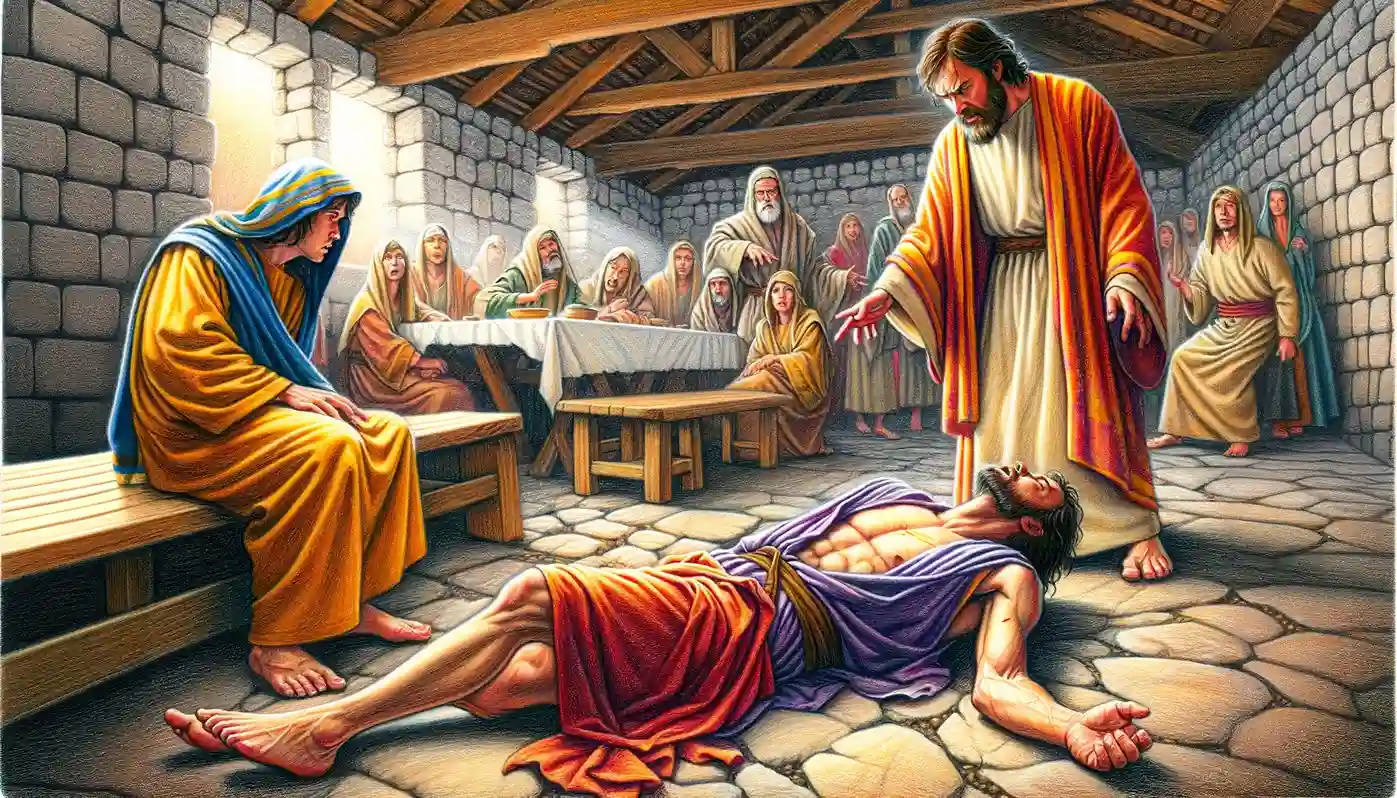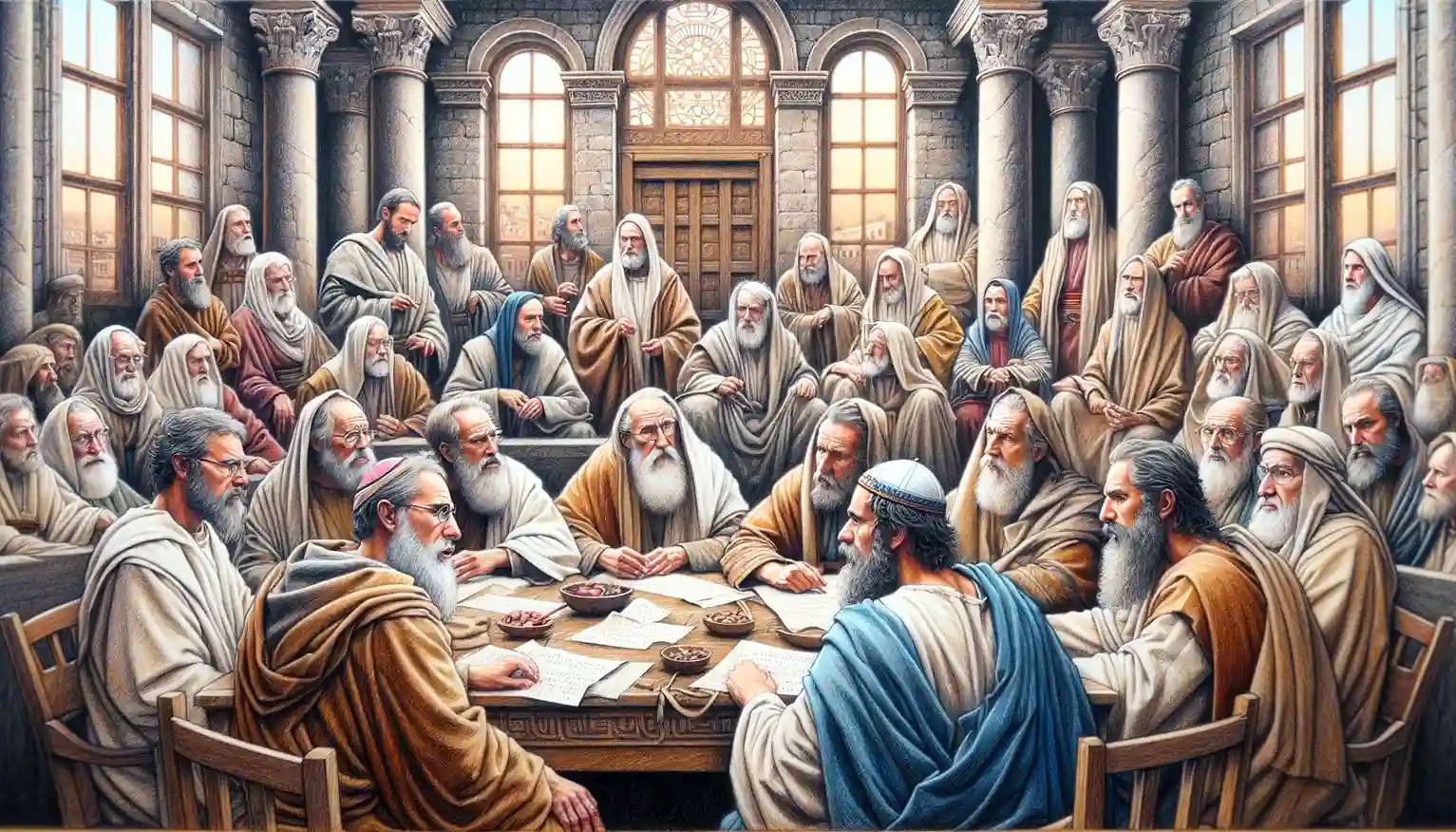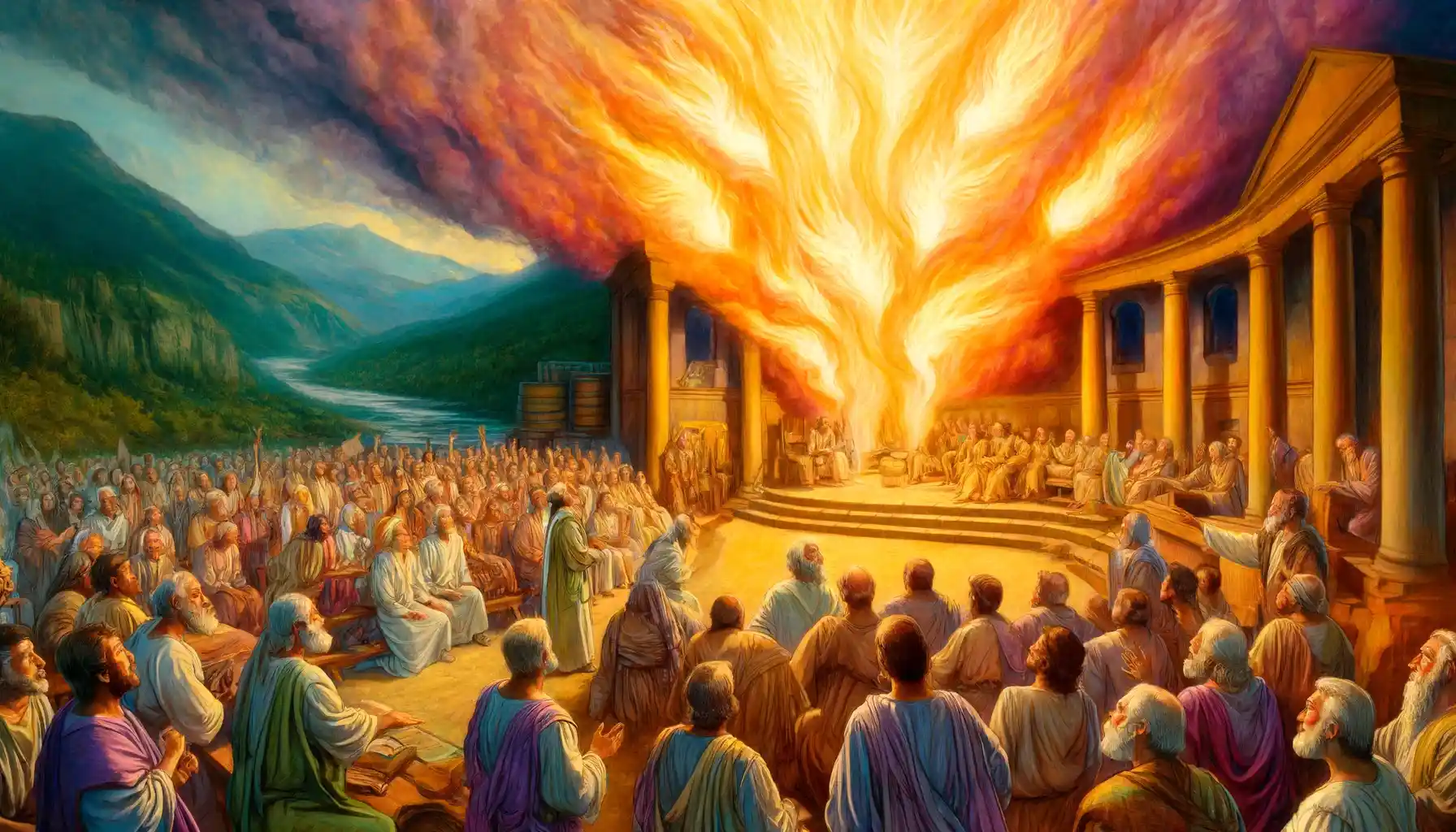Antioch, known as the “Cradle of Christianity,” was a pivotal city in early Christian history, serving as the first place where believers were called Christians, the launching point for Paul’s missionary journeys, and a key center for the inclusion of Gentiles in the faith, significantly shaping the spread and theological foundations of early Christianity.
Sapphira and Ananias were a couple in the early Christian church who were struck dead for lying to the Holy Spirit about the proceeds from a property sale, highlighting the severity of deceit in God’s community.
Mark, also known as John Mark, was a companion of Paul and Barnabas and is traditionally believed to be the author of the Gospel of Mark, playing a crucial role in the early Christian movement and the spread of the Gospel.
The Council of Jerusalem, described in Acts 15:1-35, addressed the controversy over whether Gentile converts to Christianity needed to follow Jewish law, ultimately deciding that they did not need to be circumcised but should abstain from certain practices, thus fostering unity in the early Church.
The Book of Acts is vital for understanding the development of the early Christian church and its teachings, serving as both a historical document and a theological treatise.
The Gospel of Matthew is rich in theology and Christology, making it a foundational text for understanding Christian doctrine and the narrative of Jesus’ life as both a fulfillment of and a break from Jewish tradition.







